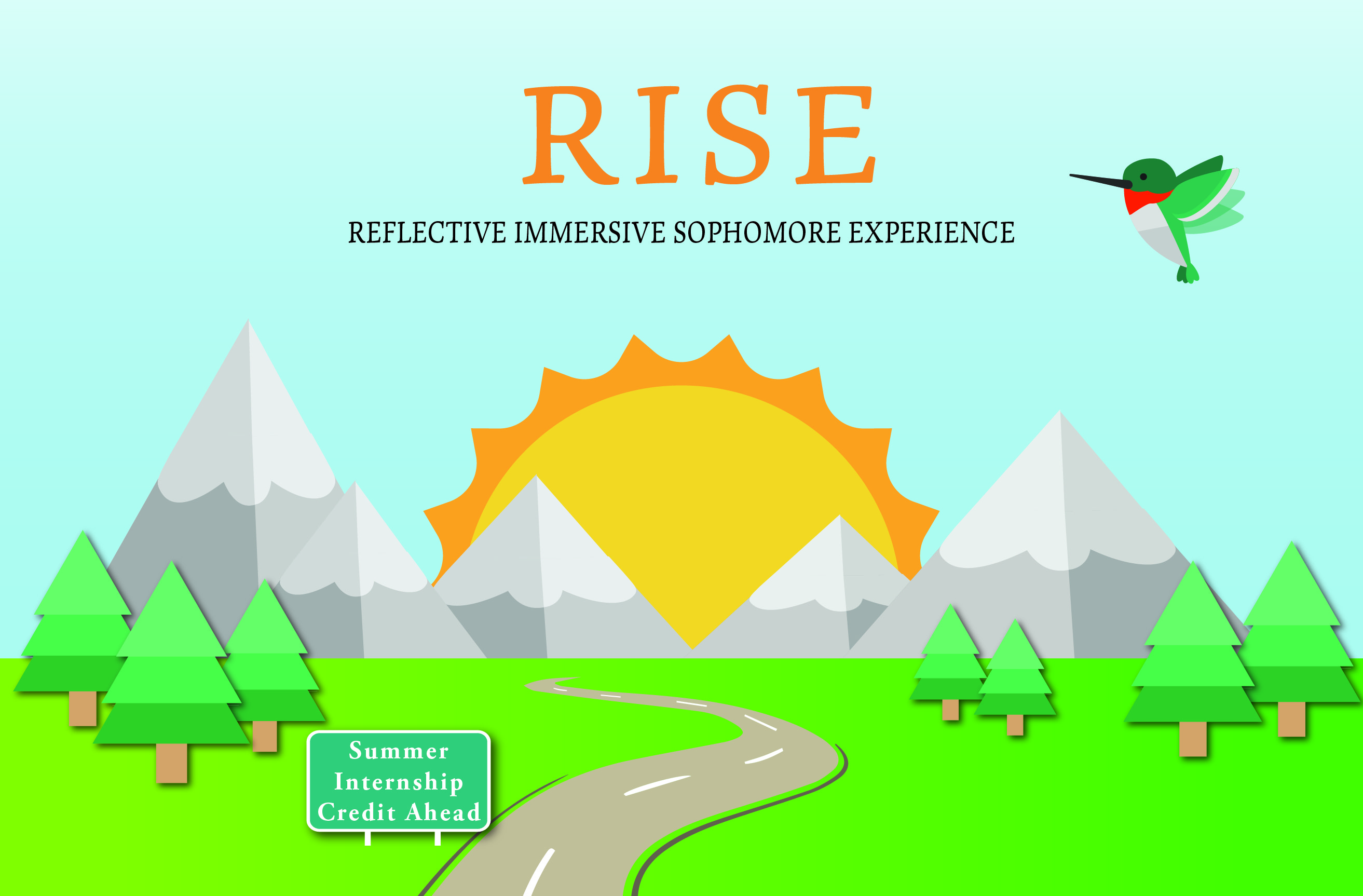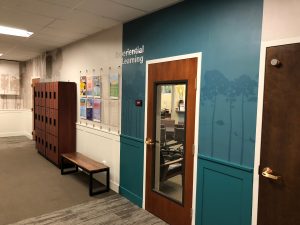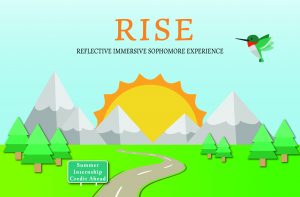
By Angela Cookston
The Trail sat down with Renée Houston, Associate Dean for Experiential Learning and Civic Scholarship and Professor of Communication Studies, on Nov. 2 to discuss the new internship preparatory course.
The Reflective Immersive Sophomore Experience (RISE) pilot program, or EXLN201, is a Spring 2018 course that will allow sophomore students to gain 0.25 units of academic credit for a class preparing them for an internship and for completing an internship itself. It is available to students who have a GPA of 2.5 or above.
The RISE program was built specifically for sophomores. “At the end of your sophomore year you’re declaring your major,” Houston said, “and it’s a good time for students to start thinking about, ‘What are my interests? … How might I take those interests and translate them into something that I might want to try out as a possible career?’”
The course meets only five times during the semester. “In the class for the first four weeks, the students are going to do some self-reflection on who they are and what their interests are. … In addition to self-reflection, students will get expert help on writing a resume, writing a cover letter, searching for internships and practicing interview skills,” Houston said.
After the first four meetings, there is a gap in the course that allows time for students to search for internships. Career Employment Services (CES) and the faculty leading the course will help students with this search. “At the end of the day, the student still has to find and successfully locate the internship,” Houston said. The class meets one last time after this gap to help prepare students to succeed in their internship.
Once the semester ends, students will start their summer internships. During the 120 hours of interning that is required to earn credit, students will take field notes, develop a portfolio and reflect on their internship experiences.
The RISE program is different from how academic internships have been completed at the University in the past. “Students have been doing internships all along the way,” Houston said, referencing the many students who have interned through the University before the RISE program began.
In the past, students who want to get credit for an internship have faced some barriers that make this process difficult. The program wanted to make finding and completing academic internships easily accessible to students. “There’s just some barriers that we were hoping to remove. … Internships are so important for student experiences that we really wanted to give them an easy way to find and locate an internship, then to academically frame the internship,” Houston said.
There are many benefits for students who finish college with an internship on their transcript. “We know employers are looking for students with experience, bottom line,” Houston said. “We just want to make sure that we … give them the skills to succeed in getting that experience that they’re looking for.”
In addition to benefits in finding employment, completing RISE will benefit students who self-reflect. “Students who take time to reflect on their experiences are able to articulate the narrative of what they’re capable of and what they bring to an employer,” Houston said. “Employers can tell the difference between students who have had the opportunity to kind of think and talk about who they are, versus those who haven’t.”

Houston spoke on the methods of teaching behind experiential learning: “That’s exactly the pedagogy behind experiential learning, to ask people to reflect on how they’re connecting with their learning in the classroom with what they’re doing, and then being able to articulate that,” Houston said. “That moment to slow down and reflect on it, I think, is a really powerful and transformative moment for students.”
While the internships that students choose are not required to be local, there are benefits to interning in Tacoma. The University has built relationships with some local organizations accepting interns in the Tacoma area. “These are partners we know and we’ve cultivated, so we know they’re good internship opportunities,” Houston said. “And they’re open only to Puget Sound students.”
In addition to local internships having relationships with the University, another advantage is that low-cost on-campus summer housing will be available for students who stay in the area for immersion internship programs.
“The goal is for every qualified student to participate in the RISE program,” Houston said. The many benefits of interning during college would help ensure that everyone who graduates from the University will have had access to an internship experience that will help them with their long-term careers.

